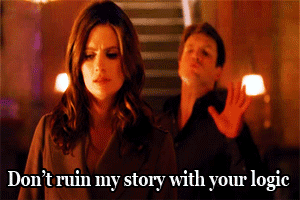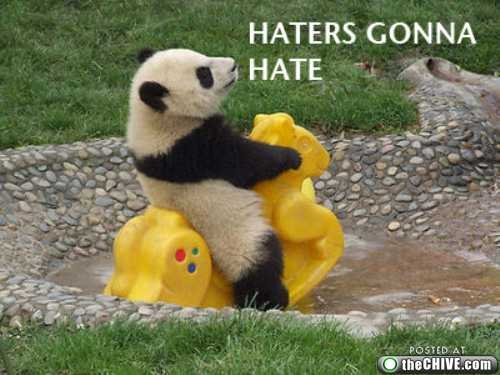The Precious Stone Trilogy by Kerstin Geir. Translated into English by Anthea Bell.
Overall, I had a good time reading these books. They were a very 'light' read compared to the Allegiant reread they interrupted.
"She taught me all about real sacrifice. That it should be done from love... That it should be done from necessity, not without exhausting all other options. That it should be done for people who-"
*We interrupt your current book for a trip to Germany. You'll have to find a new book.*
"You were talking to that niche in the wall again, Gwyneth. I saw you.
Yes, but it's my favorite bit of wall, Gordon. I'd hurt its feelings if I didn't stop and talk to it."
I must admit that was a very interesting transition, and a bit awkward. Like when there's a commercial on TV about starving children with really sad background music and then they switch to one of those toy commercials with a very lame song.
The Precious Stone Trilogy is about 16-year-old (always sixteen in YA) Gwyneth, who discovers she can travel in time. Since her family always assumed it was her cousin Charlotte who had inherited the time traveling gene, Gwyneth is suddenly part of a series of confusing mysteries she was not at all prepared for. Her fellow time traveler, Gideon, is both a burden and an essential part of the prophesies and legends. (And, of course, they fall in love. Duh.) Together they have to sort out on whose side they want to be.
This is not one of my favorite series and I won't reread it. It was very funny and cute, but not necessarily my favorite piece of cake.
When do you read this book:
-If you liked/loved the Mortal Instruments. I've only seen the first movie, but it's pretty similar stuff.
-If you enjoy good humor and interesting (if somewhat predictable) magical mysteries.
-If you want a book with time travel, magic, and a female protagonist.
Ratings:
Ruby Red: 3,5 stars
Sapphire Blue: 3 stars
Emerald Green: 4 stars
I will go into the books and my likes and dislikes now. These will contain spoilers.
World building
Okay, the world building is incredibly interesting. It gives a really original perspective on time travel. Normally we have a pretty romanticized image of it, where we step into a time machine, have tea with Mary Antoinette in a pretty dress, and then just go back to our own time. The idea of uncontrolled time travel and having to elapse is really cool (except for the characters, obviously). All the mysteries are very interesting, but sometimes they're a little 'simple'. I figure them out before the characters do, and I'm not Einstein.
But I loved the chronograph and the 'super powers'. There was a problem, though, no matter how wonderful the world building was.
Plot holes
Okay, story time. A while ago, I gave my brother a summary of the Scorch Trials and the Death Cure, the second and third book in the Maze Runner Trilogy. He pointed out plot hole after plot hole, even some I hadn't noticed when I was reading the books. Eventually I told him that without plot holes and with everyone acting completely rational and logical, there is no story.
So I get that Kerstin Geir needed to add some stuff that didn't make sense, but I was constantly asking myself questions.
What in the world does immortality have to do with time travel?
Is her ability to see ghosts 'the magic of the raven' or her immortality?
What is Gideon's super power? In the first book, you get the illusion he can read minds like the count, but this is never further explained in the other books.
How did this time traveling thing start? Who wrote the prophesies?
The prophesies say that either Gwyneth or the count lives forever. If that's true, how is it possible for both Gideon and Gwyneth to be immortal in the end of the last book?
How did this time traveling thing start? Who wrote the prophesies?
The prophesies say that either Gwyneth or the count lives forever. If that's true, how is it possible for both Gideon and Gwyneth to be immortal in the end of the last book?
If you can only stay in the past for max. four hours on one end with the chronograph, and Lucy and Paul live there, how is that possible? Yes, they took the chronograph first to stay there forever, but how did it travel back? Did it float through time and space until it somehow ended up at Lucas' house? Or did it...?
With some of these questions, it must just be me. Maybe I've accidentally glanced over something important. If you can answer one of my questions, please comment.
With some of these questions, it must just be me. Maybe I've accidentally glanced over something important. If you can answer one of my questions, please comment.
Of course, plot holes are practically inevitable with time travel. This is because of the 'grandfather paradox'. It states that if you kill your grandfather or ancestor in the past, you don't exist. But if you don't exist, you can't have killed your ancestor and that would mean he were alive, making sure you're alive and you can kill him again and so on. Now, I know what you must be thinking. Gwyneth didn't kill her ancestors. True, but the grandfather paradox covers more scenarios than you'd think. Take a simple example. You have a time machine and want to kill Hitler so WWII never happens. You go back in time and kill him. But if you killed him, he would never exist, so you wouldn't have a reason to go back in time and kill him, so you wouldn't go back and he would be alive and so on and so on. More information on the grandfather paradox here.
The book solves the problem very efficiently by stating that everything in time is set in stone. But that forces people to make completely irrational decisions. Why didn't Gwyneth's grandfather Lucas tell her mother not to lie about her birthdate? It would have been way easier if she would have been better prepared. And what if Gwyneth didn't always confirm what is going to happen with messages and letters?
Generally, I don't have a problem with plot holes, but I did not like how Geir leaves us hanging on some plot points. In the first book, Gideon sometimes literally recites what Gwyneth thinks, letting us belief he reads her mind. There's no word about this in the other books. I think it's not entirely fair not to answer logical questions.
The book solves the problem very efficiently by stating that everything in time is set in stone. But that forces people to make completely irrational decisions. Why didn't Gwyneth's grandfather Lucas tell her mother not to lie about her birthdate? It would have been way easier if she would have been better prepared. And what if Gwyneth didn't always confirm what is going to happen with messages and letters?
Generally, I don't have a problem with plot holes, but I did not like how Geir leaves us hanging on some plot points. In the first book, Gideon sometimes literally recites what Gwyneth thinks, letting us belief he reads her mind. There's no word about this in the other books. I think it's not entirely fair not to answer logical questions.
Characters
I very much liked the characters, even though they weren't super realistic. But honestly, when is a character 'good'?
Let me tell you what I mean with two simple examples.
The judgement box:
The Winner's Trilogy vs. the Lunar Chronicles
The Maze Runner Trilogy vs. the Selection Series
If you have not read these series yet, do not fear, no spoilers here. (Lame rhyming.)
The Winner's Trilogy is my first fantasy YA and I loved it. It has a Game of Thrones-y feeling to it and the plot twists and romance and politics are amazing. Some, though, find the characters too empty. I, personally, do not. On the other side are the Lunar Chronicles, one of my favorites, too. Those characters are awesome and friendly, but edge towards the other extreme: too funny to be true. I don't think there's anything wrong with them, but they are just so funny and cool that they just manage to stay within the happy medium. Same goes for Kestrel and Arin. They are all still in no danger of slipping out of the happy zone with their last book, though. They have skilled authors and a good storyline and I trust the last book to handle everything the right way.
The following two series are IN MY OPINION no longer part of the happy medium. Feel free to curse at me in the comments for what I think of these books.
The Maze Runner Trilogy is nice, but the characters suck. They often don't have more than one personality trait and even those rarely really stand out. Now I understand that it's hard to have a lot of personality after suffering amnesia, but still. I'm willing to give up some amnesia realism to have a little more character development.
The Selection doesn't work for me either, though. The characters give me the sense of a drawing of a toddler with big, bright colored markers. There are some terrible generalizations, even some racism, and evil is completely and entirely EVIL and perfect is entirely PERFECT. There is only one interesting character and everyone acts only based on their one specific quality. All those qualities are also very steriotyped and done a hundred times over.
There's a big difference between a little mermaid on fire and stained with blood and a blank paper, but this is also very personal. I love the characters in Divergent, others find them hollow. I think the characters in Paper Towns are a little stereotyped, some people find them extremely realistic. It's a matter of what you enjoy to read, but also how you were feeling when you read the book, what you read before it and what kind of people surround you. I guess there might even be a cultural aspect and how you were raised. The people in the Netherlands are quite composed. It takes a while before you really know them and they are pretty complex (of course all people are complex).
*realizes she has spent nearly 500 words writing about different books*
These characters are a little fake to me, but they also make for some great comic relief. Yes, the count is legitimately evil, but he scared me way more than the evil king in the Selection. Aunt Maddy is completely weird, but that makes her also quite interesting. Xemerius is my definite favorite. He is a sarcastic, easily bored ghost-demon and he is one of the reasons I still give book two three stars. Lesley is a little cliché, but she is so much fun to read about, and Raphael is adorable.
Charlotte and Evil Aunt bugged me at first, but I somehow like Charlotte better after the concert as a green fairy. It gives her character a little bit more depth. Gwyneth is a very cool narrator. She doesn't really know what she's doing at the beginning of the book, just like the reader, which makes her an understandable bridge between our world and her new world.
The following two series are IN MY OPINION no longer part of the happy medium. Feel free to curse at me in the comments for what I think of these books.
The Maze Runner Trilogy is nice, but the characters suck. They often don't have more than one personality trait and even those rarely really stand out. Now I understand that it's hard to have a lot of personality after suffering amnesia, but still. I'm willing to give up some amnesia realism to have a little more character development.
The Selection doesn't work for me either, though. The characters give me the sense of a drawing of a toddler with big, bright colored markers. There are some terrible generalizations, even some racism, and evil is completely and entirely EVIL and perfect is entirely PERFECT. There is only one interesting character and everyone acts only based on their one specific quality. All those qualities are also very steriotyped and done a hundred times over.
There's a big difference between a little mermaid on fire and stained with blood and a blank paper, but this is also very personal. I love the characters in Divergent, others find them hollow. I think the characters in Paper Towns are a little stereotyped, some people find them extremely realistic. It's a matter of what you enjoy to read, but also how you were feeling when you read the book, what you read before it and what kind of people surround you. I guess there might even be a cultural aspect and how you were raised. The people in the Netherlands are quite composed. It takes a while before you really know them and they are pretty complex (of course all people are complex).
*realizes she has spent nearly 500 words writing about different books*
These characters are a little fake to me, but they also make for some great comic relief. Yes, the count is legitimately evil, but he scared me way more than the evil king in the Selection. Aunt Maddy is completely weird, but that makes her also quite interesting. Xemerius is my definite favorite. He is a sarcastic, easily bored ghost-demon and he is one of the reasons I still give book two three stars. Lesley is a little cliché, but she is so much fun to read about, and Raphael is adorable.
Charlotte and Evil Aunt bugged me at first, but I somehow like Charlotte better after the concert as a green fairy. It gives her character a little bit more depth. Gwyneth is a very cool narrator. She doesn't really know what she's doing at the beginning of the book, just like the reader, which makes her an understandable bridge between our world and her new world.
Romance
The insta-love. It burns.
Pretend you meet this very good-looking guy who is an *** towards you and thinks you're a lesser human being than he is. What do you do? You fall hopelessly in love with the guy after knowing him for about a week. Well, of course. He's good-looking. Why does he like you? No freaking clue, but who cares? You can still kiss him like there's no tomorrow in a CHURCH whenever you feel like it.
No.
I would rather have a good love-triangle than terrible insta-love.
No.
Gwyneth might not have needed more than a couple days to like him, I needed two-and-half book over almost two weeks to like him, let alone love him. Gideon is arrogant, bossy, sexist, and conceited. I hated him, until the last book where he actually becomes a little less impossible. But he still remains bossy.
I do not like this romance. End of the discussion.
The ending
So Gwyneth and Gideon are both immortal and even though there friends and family will all leave them at some point and they will never be able to join them naturally, that doesn't matter because they're in love. Nope, not Twilight, I promise. That's a ridiculous ending! Wouldn't you be sad if you had to live forever and your little brother and sister would just die?
By the way, if they get a kid, does it live forever?
Religion
I have some mixed feelings about this book. Not because it's bad or anything. For personal reasons, I do not like the whole demons and ghosts stuff.
*this is pretty hard to write down*
I try to avoid things like angels and demons in books. That's also a reason not to read he Mortal Instruments to me. I don't have a problem with different religions in books, like different gods in fantasy series. Neither do I immediately dislike magic. (The Harry Potter Series is planned for this fall to New Year's Eve.) But demons and angels and my own religion are something else. I don't think it's wrong to read a book with those things in it, I just don't like to do it myself.
Don't get me wrong. I'm not some saint that's going to try to evangelize you over here. It just slightly alters what I read. Judge me whatever you want. This is just a reason why I PERSONALLY liked this book series a LITTLE less.








No comments:
Post a Comment